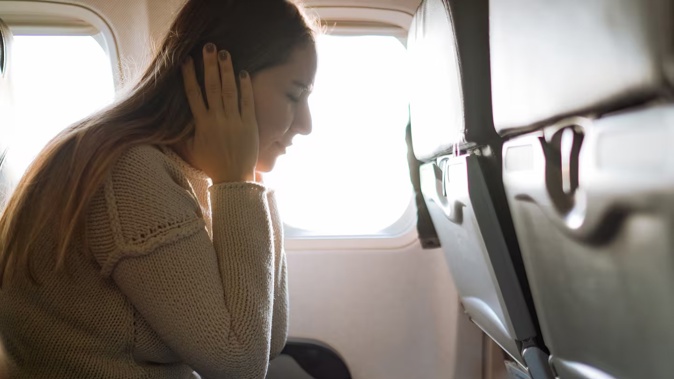
A new survey conducted in the United States looked at how Americans felt about air travel amid recent safety issues and accidents with Boeing’s planes, finding that nearly one in two have developed a fear of flying.
The recently released research by JW Surety Bonds examined the perceptions that 1000 people had towards flying.
Of those surveyed, 230 were part of Gen Z. The results found that 49 per cent of Gen Z respondents had developed a fear of flying.
“Flying fears appear to be especially heightened among Gen Z,” Merritt Ryan of JW Surety Bonds told the New York Post. He emphasised that no other generation was more afraid of air travel than the young generation.
During the Covid-19 pandemic, anxiety among the Gen Z demographic generally increased as their trust in family, friends, and established institutions eroded and became difficult to maintain during a significantly uncertain yet pivotal time in their lives, said Lesley Koeppel, a therapist based in New York City.
“People trust their parents growing up, but they [Gen Z] reached an age where Covid happened, and there were all sorts of inconsistencies that made these kids wonder: ‘Are these societal institutions to be trusted?’” she told the Post.
Koeppel highlighted that many parents themselves were diffusing their anxieties onto their children, particularly during the stress of recent years involving Covid, war and the cost-of-living crisis.

This photo released by the National Transportation Safety Board shows a gaping hole where the panelled-over door had been at the fuselage plug area of Alaska Airlines Flight 1282. Photo / AP
Gen Zs have access to a wide array of information from outside sources on social media and the internet. This steady stream of information has often been in conflict with what they would usually hear from those around them, especially when that information is ever-changing each day.
“[Gen Z were told] Wear a mask, don’t wear a mask, get vaxxed, don’t get vaxxed, don’t touch a package that comes to the house, now you can touch the package,” Koeppel said. “There was so much misinformation and inconsistency.
“I really think that put that generation on shaky ground, when they were supposed to be able to be branching away from their parents and learning to trust these sources that could not be trusted. When you don’t trust, you develop anxiety and can go backward.”
Due to this, many young people develop greater trust issues and are more cynical than other generations, instead choosing to doubt the reliability of sources like Boeing, aviation officials, and airlines, Koeppel said.
Boeing has been put under the microscope by aviation officials worldwide as its planes continue to be subject to safety investigations.

Covid-19 restrictions led many Gen Zs to grow accustomed to the comfort of their homes and scared to face their fears, said Lesley Koeppel.
In January, an Alaskan Airlines Boeing 737 Max 9 had to make an emergency landing after a door plug panel blew off mid-flight, leaving a hole in the plane and passengers scrambling for their oxygen masks.
Earlier in March, a Latam Airlines Boeing 787 Dreamliner flight from Sydney to Auckland dropped mid-air without warning, injuring 50 passengers on board.
A nose wheel also fell off after take-off from a Delta Air Lines service, and more potential safety issues with the engines of the 737 Max and 787 Dreamliner have been announced since.
Koeppel added that Covid restrictions allowed many Gen Zs to socially retract into more comfortable environments and that lockdowns at home led to those young people struggling to return to the real world.
“If you have anxiety, one of the ways to treat it is exposure therapy, so it doesn’t get a chance to get a hold of you,” she said.

A Latam Airlines Boeing 787 at Auckland Airport. Photo / Brett Phibbs
“When the world was shut down and people weren’t travelling that was at least a year of people not being exposed to what they might be afraid of.”
However, fear of flying was still high amongst the general population. The same JW Surety Bonds research found that 39 per cent of Millennials had a fear of air travel, slightly less than 40 per cent of Baby Boomers surveyed.
A total of 38 per cent of Gen X surveyed said that they had a fear of flying, making those born between the mid-1960s and 1980 the least worried about boarding a plane.
Take your Radio, Podcasts and Music with you









